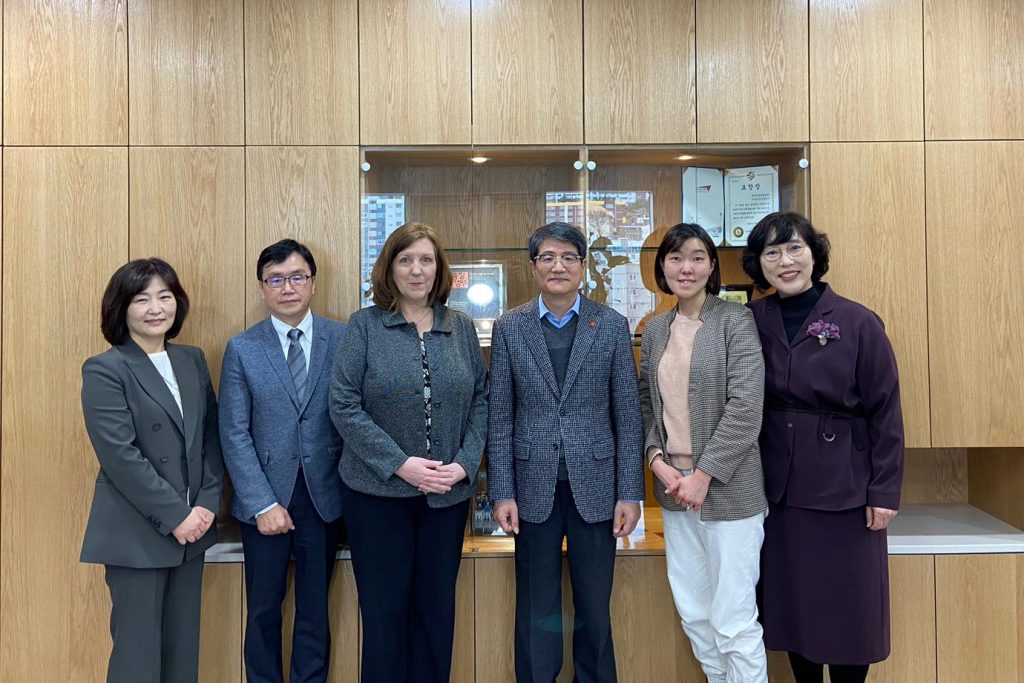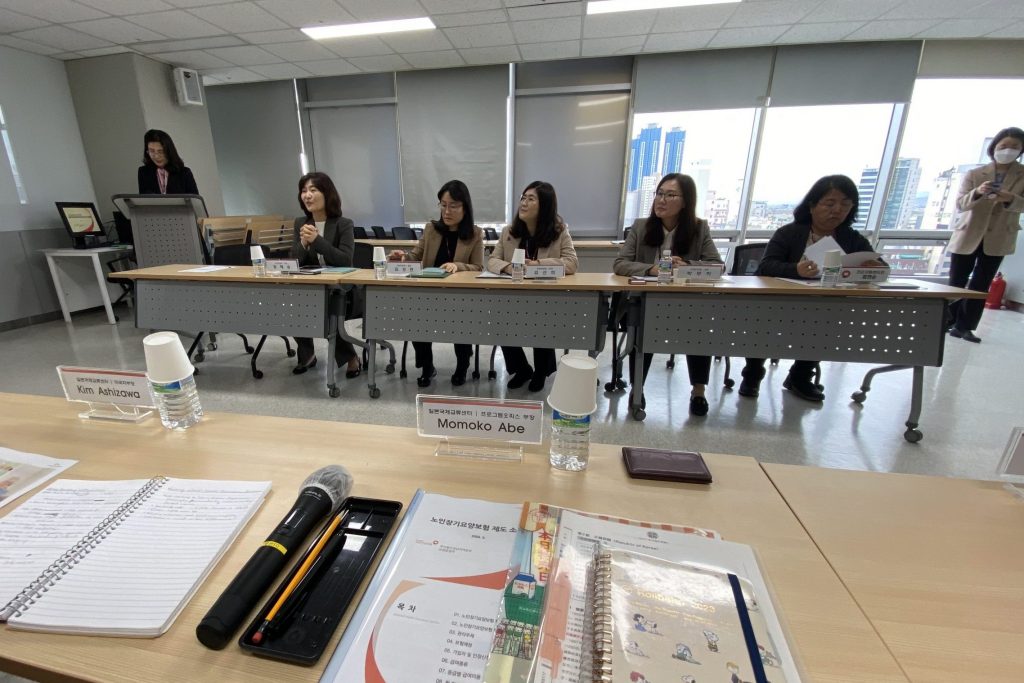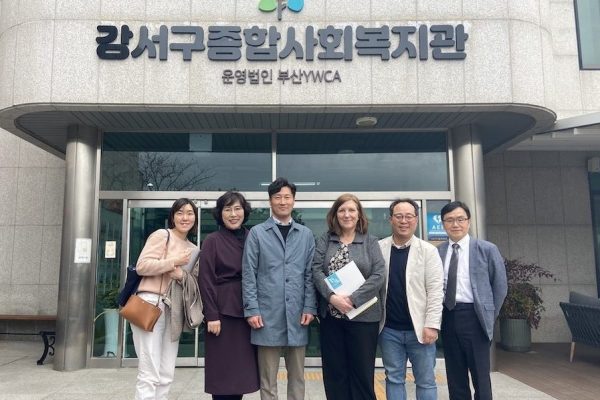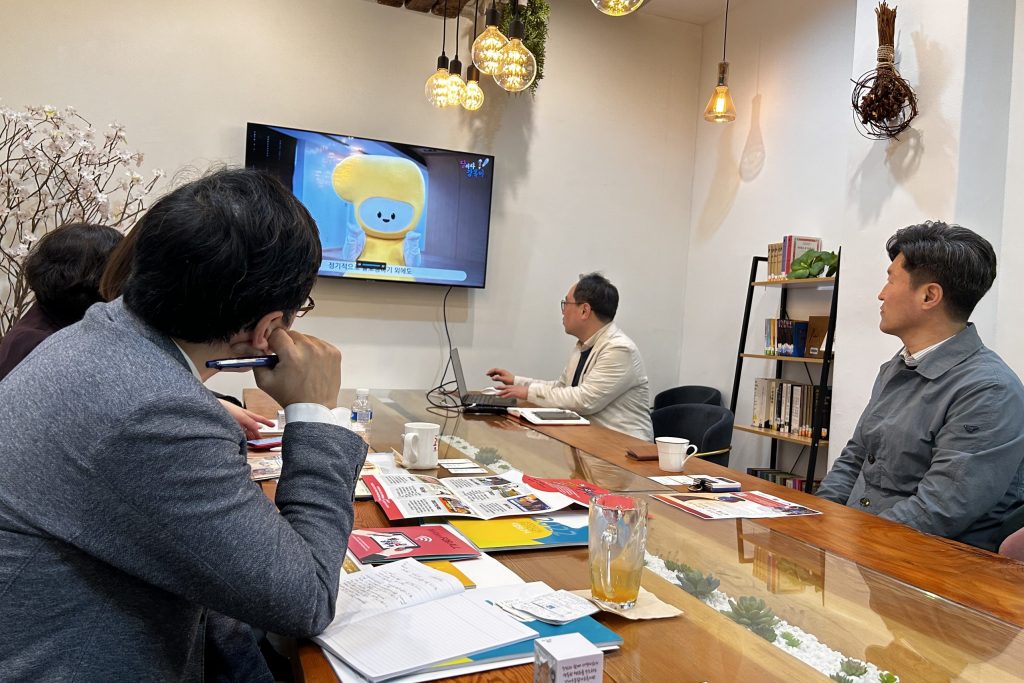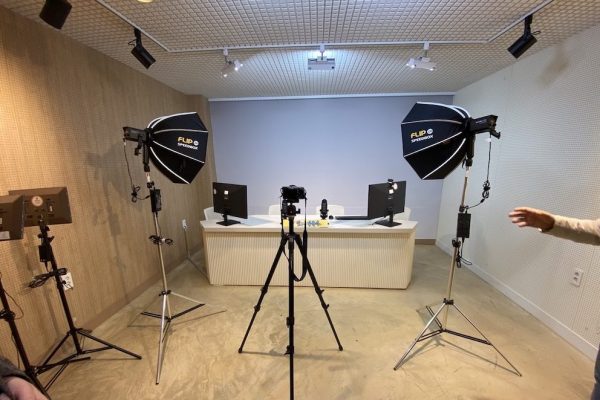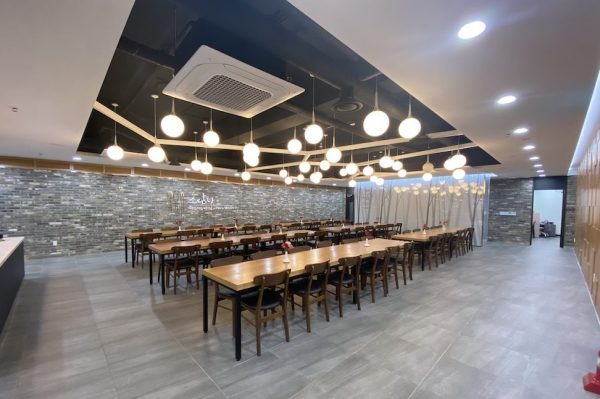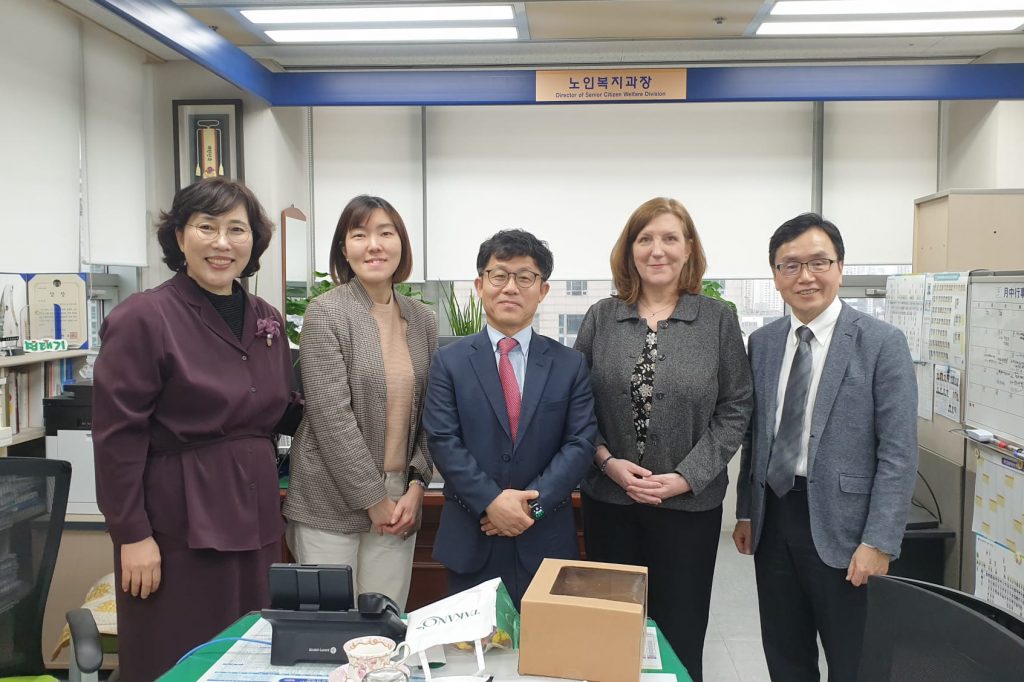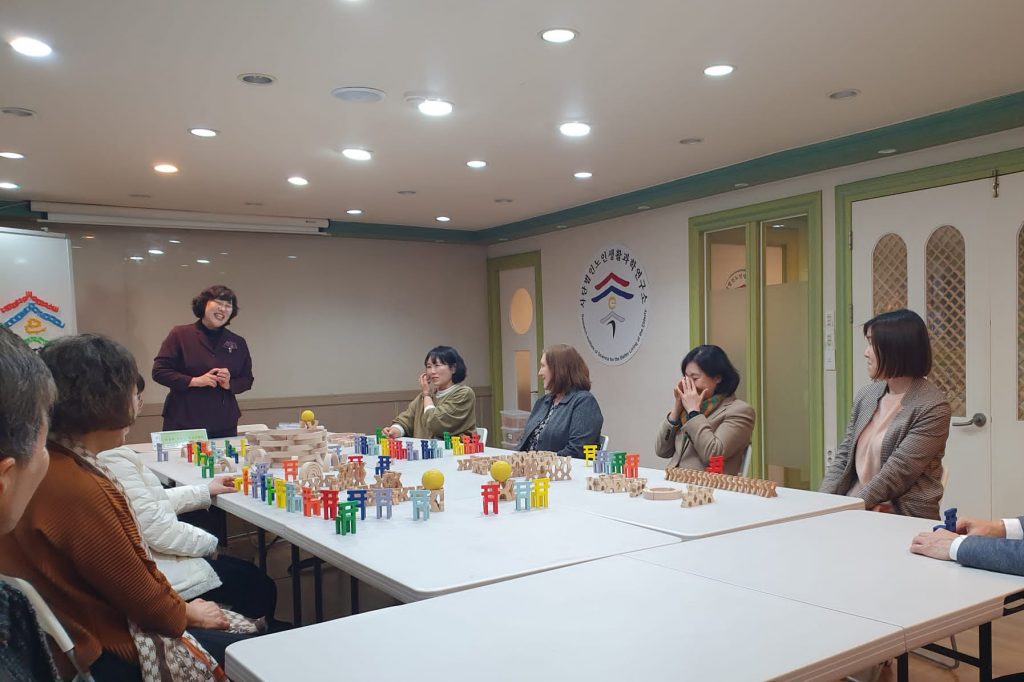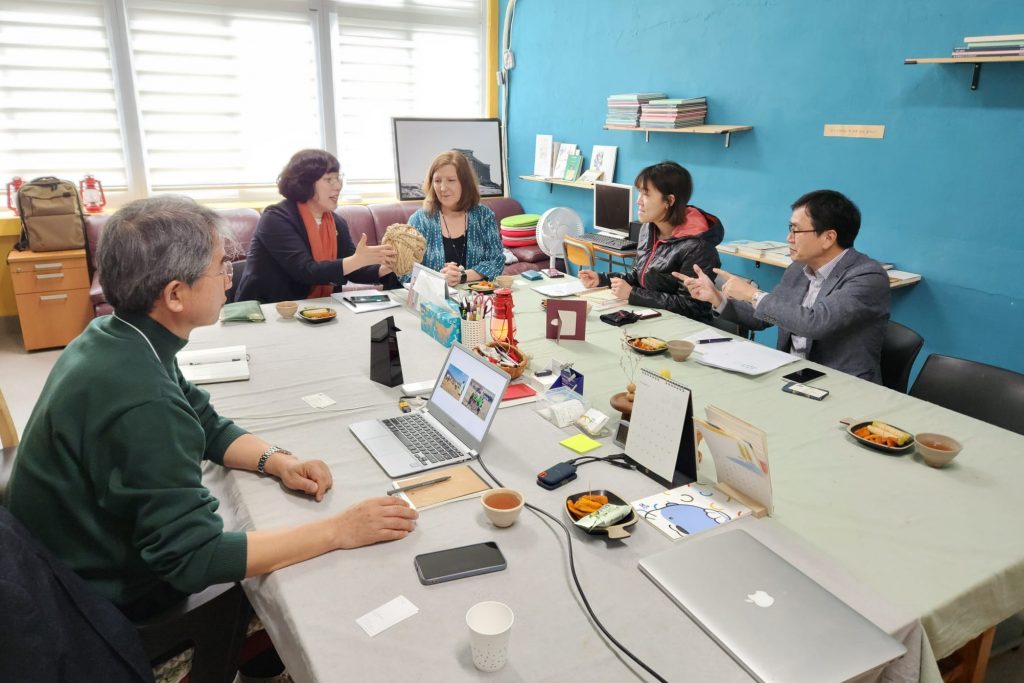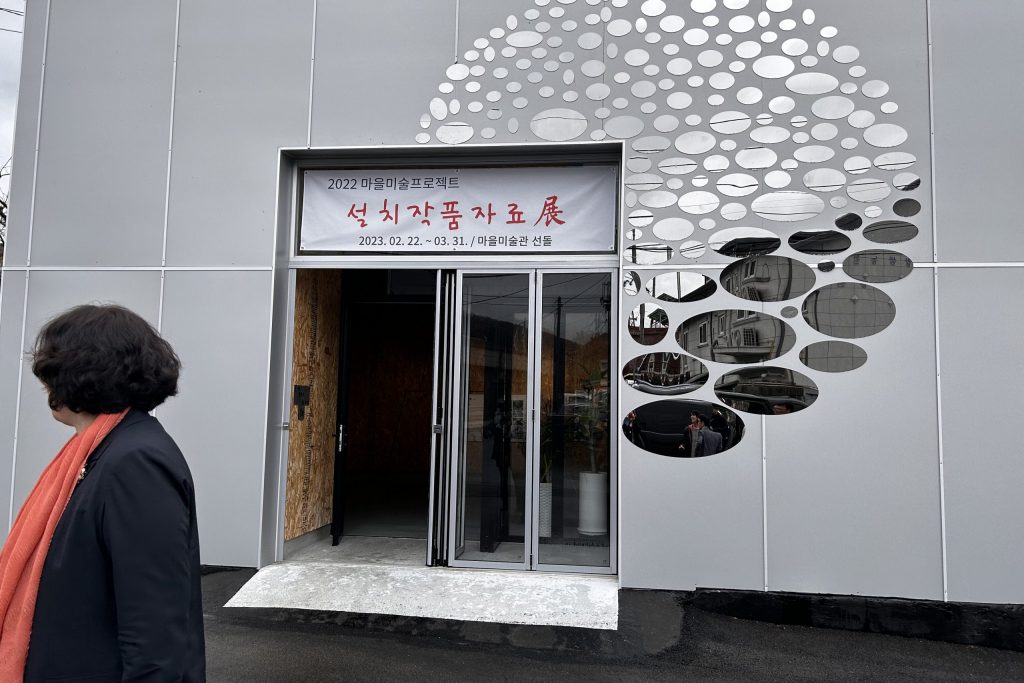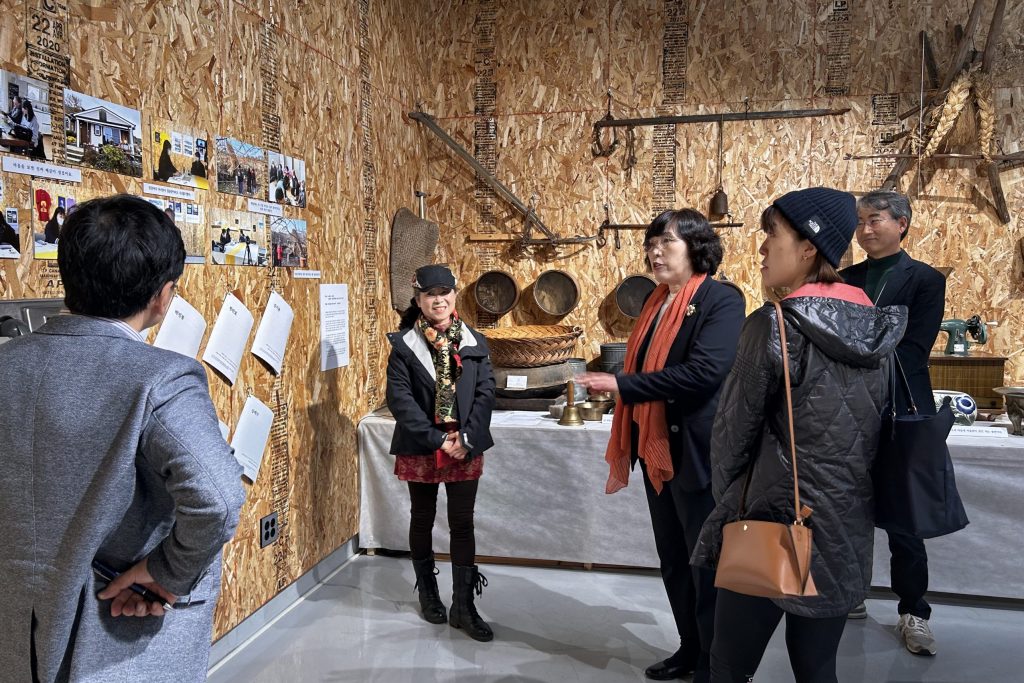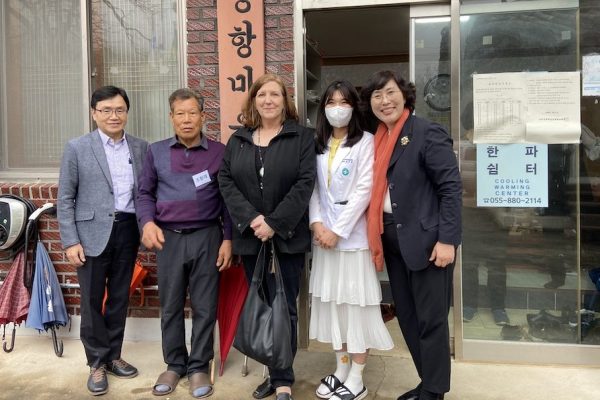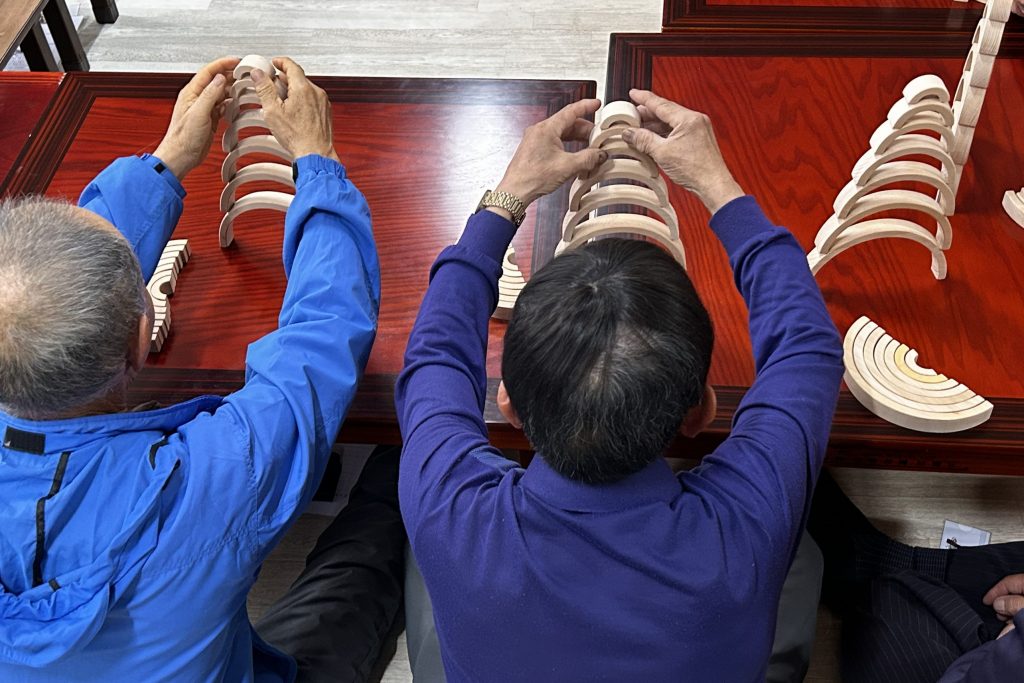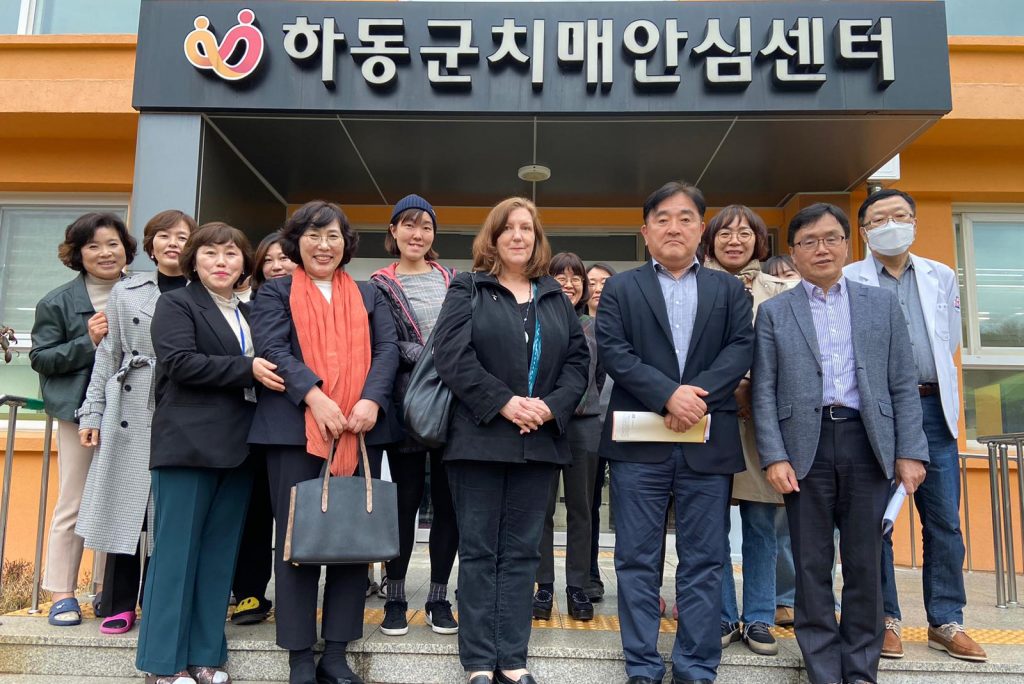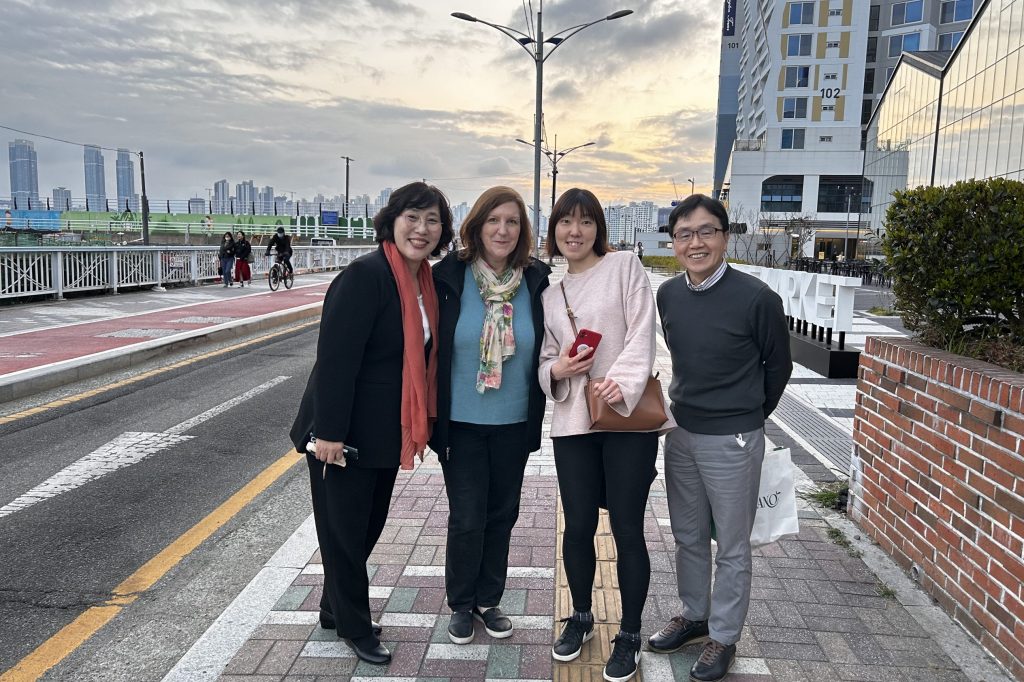Staff from AHWIN’s NPO partner organization, the Japan Center for International Exchange (JCIE) traveled to South Korea for a series of site visits and meetings organized by Dr. Donghee Han, director of the Research Institute of Science for the Better Living of the Elderly (RISBLE) and a member of the international advisory committee for the Healthy Aging Prize for Asian Innovation (HAPI).
Meetings in Busan
The team began with a visit to the National Health Insurance Service (NIHS) Busan and Gyeongnam Ulsan Regional Headquarters to discuss the status of aging in South Korea and the country’s long-term care insurance system and efforts to address the needs of people with dementia. That was followed by a site visit to the Gangseogu Community Welfare Center, which is operated by the YWCA and delivers various programs and services to families in their community. They have community care volunteers who are trained and certified to deliver home services, and they provide some medical care, working with the national health promotion center and dementia care center.
Next up was a discussion with the director of the Senior Welfare Division at the Busan Metropolitan Government, who explained that Busan had become a super-aged society in 2021, with the aging rate continuing to rise by 1% each year. By 2047, half of the city’s population was expected to be 65 or older. This makes aging a priority issue for the municipality. He explained that they have been focusing on a life-course approach to aging and on prevention, and have been trying to enable more people to age in place. The first day ended with a visit to RISIBLE, a research institution developing a variety of programs to empower older adults and family ties in Korea. Their main activities include research in active aging, older adults care, elder abuse, advocacy programs and also training programs for community care providers.
Meetings in Hadong
On the following day, the team traveled to Hadong Province, located to the west of Busan. The main local industry is tea and other agricultural products. The area faces serious population decline as the younger generation is moving out to the cities in search of jobs. They met with the founder and staff of Nolluwa Coop. Nolluwa, meaning “come play, enjoy life” in Korean, is a social business founded in 2018 to revitalize the local community of Hadong city, which was facing serious population decline. There used to be three elementary schools in Hadong, but two closed down, so they renovated one of the closed elementary school buildings to use as Nolluwa’s office. The group carries our a range of innovative work to revitalize the town, including activities like soccer games for older people and kids in the fields after the harvest, having older people write their own biographies, and sharing the history and culture of Hadong through intergenerational programs. They converted a small warehouse into an exhibit space and literary salon, have remodeled a house into a hotel, and in Maege, they are making homes into AirBnB type hotels.
The team next visited a community healthcare center to observe a session run by RISIBLE’s trained staff for local seniors. The staff had the participants work with wooden blocks to promote manual dexterity and cognitive skills and to encourage them to talk with others. The final visit was to the local Dementia Care Center. The issue of dementia was made as a national priority in South Korea when former President Moon Jae-In announced in 2017 the National Dementia Initiative. As part of that, the government established more than 250 local dementia care centers throughout the country to ensure easy access to a broad range of preventive diagnostic and care services for older people and their families. The centers fall under the Health Promotion Department and provide screening, case studies, family programs, day care, and awareness-raising.
Overall, the rapid declining birthrate and aging population in South Korea has become a social issue of the highest priority, and the government, welfare facilities, and civic groups the team visited are all actively addressing this issue. The team hopes to further engage South Korea in future efforts to share best practices and lessons learned with others in Asia and worldwide who are facing similar challenges.


